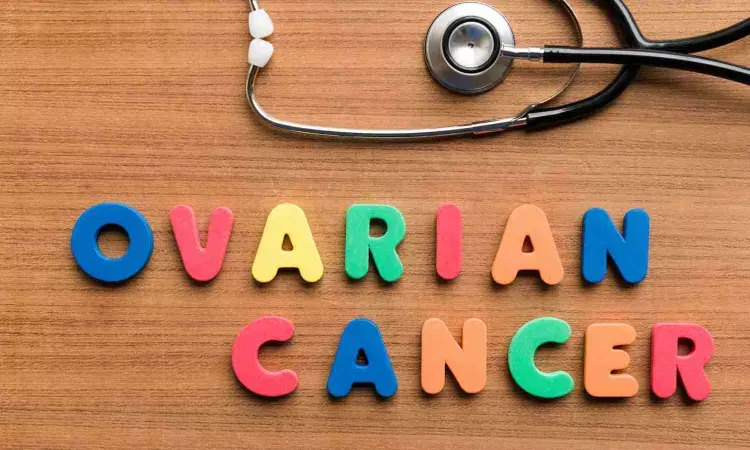- Home
- Medical news & Guidelines
- Anesthesiology
- Cardiology and CTVS
- Critical Care
- Dentistry
- Dermatology
- Diabetes and Endocrinology
- ENT
- Gastroenterology
- Medicine
- Nephrology
- Neurology
- Obstretics-Gynaecology
- Oncology
- Ophthalmology
- Orthopaedics
- Pediatrics-Neonatology
- Psychiatry
- Pulmonology
- Radiology
- Surgery
- Urology
- Laboratory Medicine
- Diet
- Nursing
- Paramedical
- Physiotherapy
- Health news
- Fact Check
- Bone Health Fact Check
- Brain Health Fact Check
- Cancer Related Fact Check
- Child Care Fact Check
- Dental and oral health fact check
- Diabetes and metabolic health fact check
- Diet and Nutrition Fact Check
- Eye and ENT Care Fact Check
- Fitness fact check
- Gut health fact check
- Heart health fact check
- Kidney health fact check
- Medical education fact check
- Men's health fact check
- Respiratory fact check
- Skin and hair care fact check
- Vaccine and Immunization fact check
- Women's health fact check
- AYUSH
- State News
- Andaman and Nicobar Islands
- Andhra Pradesh
- Arunachal Pradesh
- Assam
- Bihar
- Chandigarh
- Chattisgarh
- Dadra and Nagar Haveli
- Daman and Diu
- Delhi
- Goa
- Gujarat
- Haryana
- Himachal Pradesh
- Jammu & Kashmir
- Jharkhand
- Karnataka
- Kerala
- Ladakh
- Lakshadweep
- Madhya Pradesh
- Maharashtra
- Manipur
- Meghalaya
- Mizoram
- Nagaland
- Odisha
- Puducherry
- Punjab
- Rajasthan
- Sikkim
- Tamil Nadu
- Telangana
- Tripura
- Uttar Pradesh
- Uttrakhand
- West Bengal
- Medical Education
- Industry
New method could detect early ovarian cancer from urine samples,claims research

New research by Joseph Reiner and colleagues at Virginia Commonwealth University shows promise for a urine-based test for ovarian cancer. Reiner will present their research at the 68th Biophysical Society Annual Meeting, to be held February 10 - 14, 2024 in Philadelphia, Pennsylvania.
Previous research showed that there are thousands of small molecules, called peptides, in the urine of people with ovarian cancer. While it is possible to detect those molecules using certain well-established techniques, those techniques aren't straightforward or cost effective. Reiner sought a new approach to more easily detect those peptides.
He turned to nanopore sensing, which has the potential to simultaneously detect multiple peptides. The basic idea of nanopore sensing involves passing molecules through a tiny pore, or nanopore, and measuring the changes in electrical current or other properties as the molecules move through.
To harness the nanopore technology to detect various peptides, Reiner used gold nanoparticles that can partially block the pore. Peptides, like those in the urine of people with ovarian cancer, will then “stick to the gold particle and basically dance around and show us a unique current signature,” Reiner explained.
The method is capable of simultaneously identifying multiple peptides, and in their study they identified and analyzed 13 peptides, including those derived from LRG-1, a biomarker found in the urine of ovarian cancer patients. Of those 13 peptides, Reiner said, “we now know what those signatures look like, and how they might be able to be used for this detection scheme. It's like a fingerprint that basically tells us what the peptide is.”
“Clinical data shows a 50-75% improvement in 5-year survival when cancers are detected at their earliest stages. This is true across numerous cancer types,” Reiner pointed out.
Their ultimate goal is to develop a test that, combined with other information like CA-125 blood tests, transvaginal ultrasound, and family history, could improve early-stage ovarian cancer detection accuracy in the future.
Reference:
New method could detect early ovarian cancer from urine samples, Biophysical Society, Meeting: 2024 Biophysical Society Meeting.
Dr Kamal Kant Kohli-MBBS, DTCD- a chest specialist with more than 30 years of practice and a flair for writing clinical articles, Dr Kamal Kant Kohli joined Medical Dialogues as a Chief Editor of Medical News. Besides writing articles, as an editor, he proofreads and verifies all the medical content published on Medical Dialogues including those coming from journals, studies,medical conferences,guidelines etc. Email: drkohli@medicaldialogues.in. Contact no. 011-43720751


